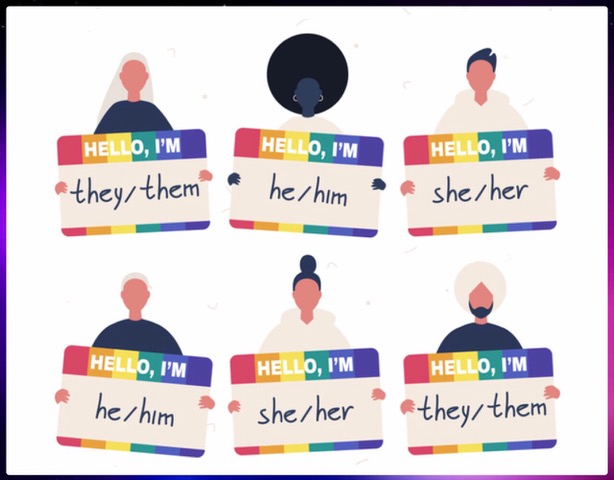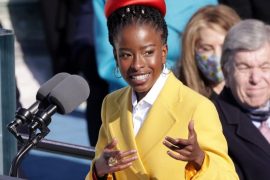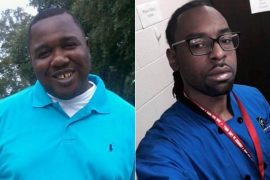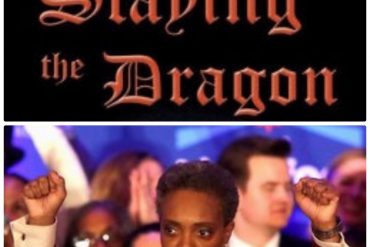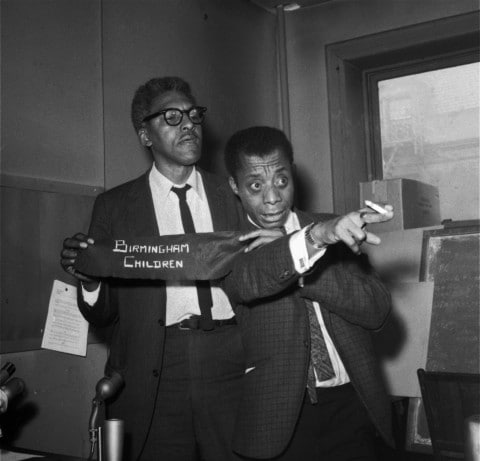
In the tradition of James Baldwin and Baynard Rustin, I am writing to give voice from the African American community about the LGBTQ Movement’s Agenda regarding “Pronouns, Inclusivity, and Gender Identity.” My goal is to not only educate, but also to advocate for Human Rights and Civil Rights for all people, regardless of race, color, creed, religion, or sexual orientation and gender identification. In the interest of full disclosure, I am a 66 years old, African American gay man with lived experience in America. I have never had a problem being gay; however, I have continually faced the challenges of living as a Black man in America. The discussion begins with the understanding that not everyone accepts the sex they were assigned at birth; and, some people develop and embrace “alternative” genders.
If the trend continues, increasing numbers of Americans will soon find “gender literacy,” second nature. A Pew Research Center study found that 35% of Gen Z’s (aged 13 to 21 in 2018) say they know someone who uses a non-binary gender pronoun, like “they” Just 25% of Millennials, 16% of Gen Xers, and 12% of Baby Boomers said the same. It should be noted that 20% of millennial’s place themselves somewhere on the LGBTQ spectrum and 12% identify as transgender or “gender fluid.” Many LGBTQ advocates and allies believe that understanding others’ proper pronouns is not a trend, and they advance the idea that it is a permanent change in America’s thinking about gender identification. Some people compare it to the changes that came with the legalization of same-sex marriages; leading to the use of “second parent” instead of father on children’s birth certificates.
Pronouns: 101
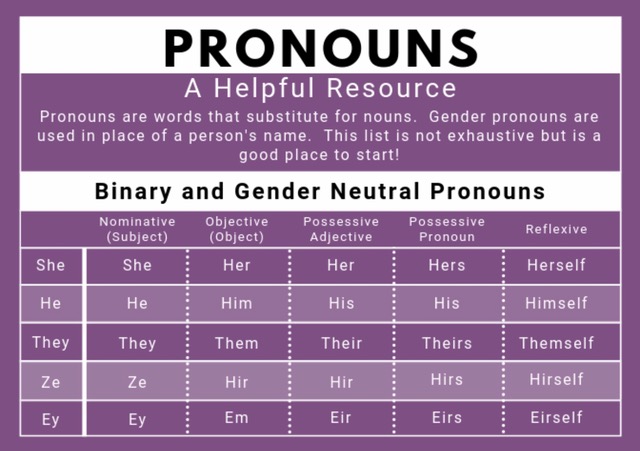
Some people identify as one gender identity their whole life. For others, it’s a lot more dynamic, and their gender identity shifts over time. These people refer to themselves as “gender-fluid,” which means that their gender can change. Some, but not all, gender-fluid people are transgender. Most people do classify gender-fluid people as being non-binary, and many gender-fluid people feel they fall under the banner of “non-binary.” Many non-binary people don’t feel like their gender changes over time, and thus, those people aren’t gender-fluid. Along with gender-fluid, non-binary people might be one or more of the following: a-gender, bi-gender, pangender, androgynous, neutrois, and demi-gender. (Source: Janet Brito, Ph.D., LCSW, CST and Sean Ferguson, 6/11/20).
Please be mindful, this is not an exhaustive list. People use hundreds of words to describe their gender. These are simply some of the terms in common use. In my research for this article, I identified sixty-four (64) terms that describe gender expression and identity. In fact, the accepted practice in the LGBTQ community is you can choose any label you like to describe yourself.
What Does All This Mean?
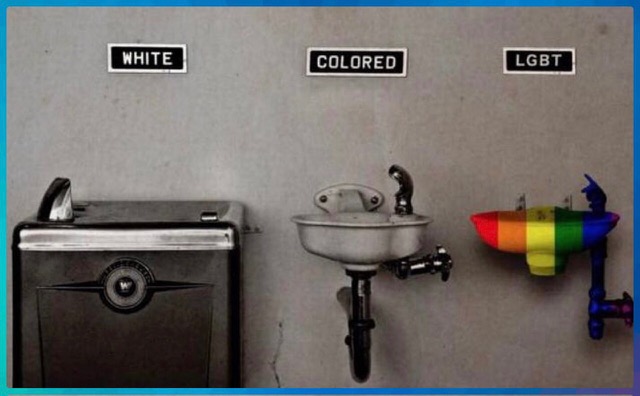
The discussion about whether gendered pronouns are progressive; or even necessary, depends on your perspective. There are some people who feel we’d be better off dropping all gendered pronouns and simply call people by their names. Also, it should be noted that normative gender standards vary widely between businesses, organizations, regions, and nations. However, many advocates in the LGBTQ Movement take the position that recognizing diverse pronouns and gender identity is a small, yet significant step towards equality for the LQBTQ community’s objective to obtain their civil rights. In fact, some in the LGBTQ Movement attempt to pander their movement as analogous to the Civil Rights Movement.

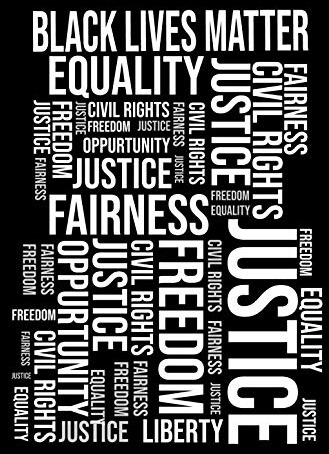
In my opinion, the LGBTQ Movement’s “Pronouns & Gender Identity Agenda” is more about Inclusion and Privilege, than Equity and Diversity. More importantly, the comparison to the Civil Rights Movement trivializes the continuing struggle of African Americans to overcome the collateral damage of Slavery, Jim Crow Laws, and Institutional Racism (systemic and structural). The fact is, the LGBTQ Movement is more analogous to The Holocaust than the Civil Rights Movement.
The LGBTQ Community has been persecuted and discriminated against, but never systemically and structurally oppressed as a group of people; because they are not readily identified as a monolithic group. The LGBTQ’s “Pronoun & Gender Identity Agenda” is akin to “political voyeurism.” With voyeurism, the interest is more in the act of watching, rather than the person being watched. My point being, the LGBTQ Movement appears to be more concerned about Inclusion and Privilege, than Human Rights and Civil Rights.
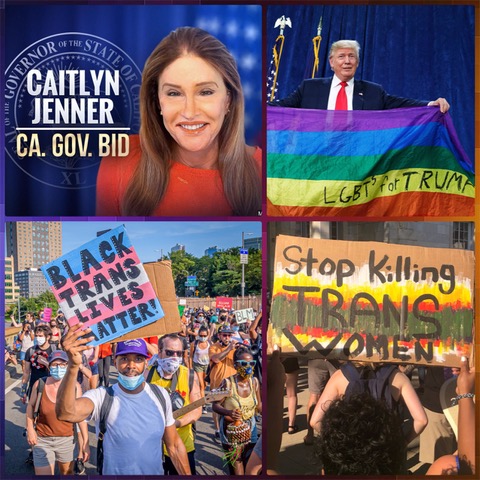
As an African American gay man, is difficult for me to engage in a serious discussion about “Pronouns, Inclusion, and Gender Identity.” I do not embrace the LGBTQ Movement and its Agendas, which were created by and for wealthy, gay white men. Within the LGBTQ Community, there is no Economic Justice, Social Justice, nor Political Justice. The existence of discrimination, racism and white supremacy are legendary in the LGBTQ Community. If you doubt it, just visit “Boys Town” on the Northside of Chicago; or better yet, look at the “poster child” for Pronouns & Gender Identity, Caitlyn Jenner, a recognized American socialite, a staunch ally and supporter of former President Donald Trump—and now, a candidate for Governor of California. This is in stark contrast to the rising murder rates among Black trans-women, increased attempts of suicide at nine times that of the general population, and 30% of transgender people reporting harassment, discrimination, or violence. The “Pronouns & Gender Identity Agenda” appears to disregard the wellbeing of all transgender people. Clearly, sharing of pronouns and gender identity has to be and must feel, optional, otherwise what appears to be inclusion will become a “forced” outing or closeting.
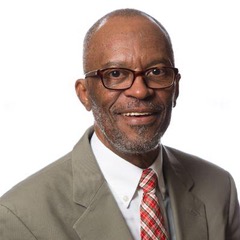
Finally, for those African Americans who identify with the LGBTQ Community’s Agendas and disagree with my position, please ask your brothers and sisters, mothers and fathers, aunts and uncles, cousins and friends—many of whom are unemployed, homeless, and in bad health, with no hope; due to systemic and structural racism in this country, this state, this county, and this city: please ask them if “pronouns” are important to them in the overall scheme of things in their lives.

